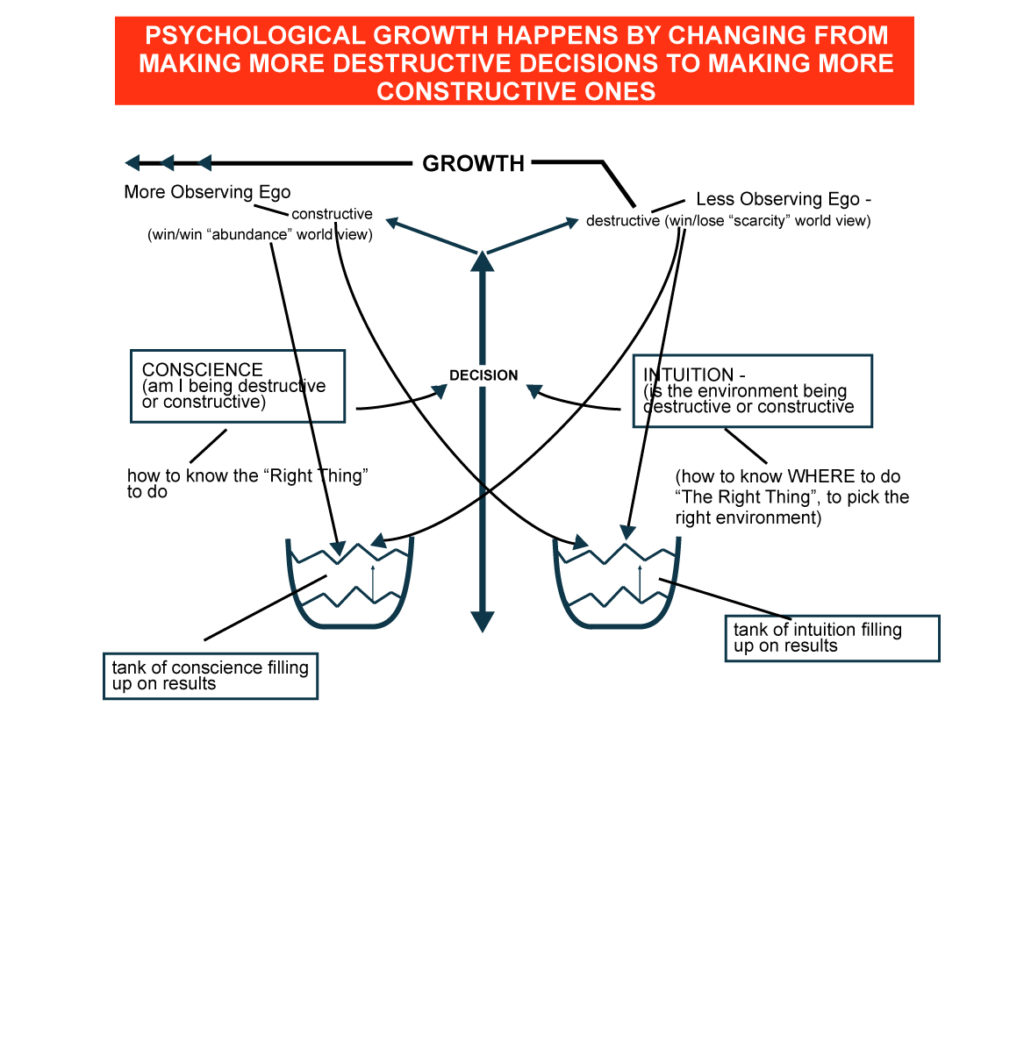That which is constructive has all kinds of connotations in psychology. For our purposes in Romantic Dynamics, it pertains to the intent and outcome of our decision-making, and can be used as a unit marker of the level of maturity (and likely success at getting to goals) in our decisions.
For purposes of accuracy and the spirit of science, we borrow from Game Theory of Economics, and specifically, what is called, "The Nash Equilibrium." This states that decisions in a system are either constructive ("Win/Win") or destructive ("Win/Lose") in nature, with the former leading to failure both for the decision-maker and the social environment, and the latter leading to benefits in both parties.
As the theory goes, using a model called, "The Prisoner's Dilemma," when one makes destructive choices vis a vis a competitor or collaborator, this can give them a temporary advantage toward success, but will eventually lead to a downfall of their endeavors at some point. If one is destructive to the self from the get-go, there is of course immediate failure. However, if one makes decisions that are beneficial to both the social environment and to the individual making the decision ("Win/Win"), then it may be a longer period to get to success, but success will come and will last for the person. They get to their goals, often aided by the environment because what they are doing benefits the environment. This is also in correlation with the virtues of mature character, and lends itself to successful partnerships toward goals - the objective and function of the third and final phase of courtship, which is the commitment of intellectual attraction.
Several operative principles go into our decision-making, including the idea of what is going on inside us versus the social environment surrounding us, and the role of the two resources that inform our every decision: conscience and intuition.
Conscience is something that guides our decisions in terms of what the likely effect will be on others in those decisions. Will it be destructive (win/lose) or constructive (win/win) toward others. After we make a decision, either constructive or destructive, we get to learn whether the effect was conscientious, or ethical, by way of feedback from others. And so our "tank" of conscience or ethics fills a bit.
Intuition is something that guides our decisions in terms of what the likely effect of choosing a particular environment to operate within will have on US. And whether the specific decisions in that environment are likely to have the social surrounds treat us back kindly or beneficially for us to reach our goals. It is a kind of "shrewdness"" about knowing people and environments that we start out in life, empty of, but over time and numerous decisions later, we learn to fill our tank of intuition up on. Think, the film, Slumdog Millionaire, for a great example of how to fill up on and use this resource.
Conscience, then tells us whether we are doing right by people, being mature of character, virtuous and constructive, or else being unethical, with vice, and destructive.
Intuition tells us whether a particular environment or kind of environment is being kind, generous, beneficial, and constructive back at us, or whether it is a destructive environment or one in which normally good decisions still lead to destructive treatment back at ourselves.
That which is destructive also correlates with immaturity, regression, criminality and even evil in our sense of the word, and is part of what is pathological narcissism. Destructiveness is what is within both the upper right branch and the down arrow of both the Anger Map and the Anxiety Map.
That which is constructive correlates with virtue, character maturity, goodness, partnership, success, and is seen in the upper left branches of both the Anger Map and Anxiety Map in the mature emotional decisions called Assertiveness and Courage, respectively.


